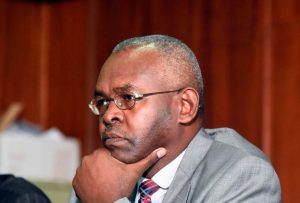
- 70 percent of kenyans faces serious decline in income
A new report by Old Mutual reveals that in 2024, 70% of Kenyans were facing a serious decline in income and rising stress levels.
The second edition of the Old Mutual Financial Services Monitor (OMFSM) paints a picture of financial distress that characterizes many Kenyans’ lives, driven by a combination of high cost of living, high taxes, food price inflation, joblessness, and a harsh business environment.

The fears are not mere threats.
Therefore, 50 percent of all Kenyans interviewed report high concern over loss of job or a decline in their income.
The concern is grounded in reality, given that just 3 in every 10 households report having money to spare after incurring basic expenses every month.
 The pressure is forcing many to take significant changes:scaling down homes, purchasing lower-priced brands, having children attend less expensive schools , and dropping discretionary expenses such as dining out, recreation, and vacations.
The pressure is forcing many to take significant changes:scaling down homes, purchasing lower-priced brands, having children attend less expensive schools , and dropping discretionary expenses such as dining out, recreation, and vacations.
Due to financial pressure, many individuals in Kenya have turned to entrepreneurship. In fact, 50 percent of all Kenyans are business owners, yet only 30 percent of these businesses are registered.

Most of them start small business undertakings, such as tutoring services, food delivery, or selling used items, often in place of increasingly hard to get formal employment.
The entrepreneurship is not without its challenges of course.
The report indicates that only 16% of these business entities enjoy protection of their business via insurance, making them vulnerable to unexpected hitches.
The financing of such business mainly comes in their personal savings, business profits, and in informal saving groups (Chamas), a reflection of unavailability of conventional funding channels.
 As Kenyans struggle with these short-term issues, they worry about long-term economic security as well.
As Kenyans struggle with these short-term issues, they worry about long-term economic security as well.
In addition, the number of Kenyans who are saving for retirement has risen from 26% in 2023 to 36% in 2024,indicating that individuals are concerned about the future.
While on the other hand, the report indicates that the confidence in these retirement savings being sufficient has dropped from 12% to 7%.

This implies that even while individuals attempt to save, they have no faith in being able to fund their financial future.
Savings towards retirement are mainly directed through employer pensions, saving groups, and direct investment.
The OMFSM report highlights the extent and depth of the Kenyans’ financial challenges.
 It identifies the pressing need for more economic stability and improved financial readiness to weather these uncertain times.
It identifies the pressing need for more economic stability and improved financial readiness to weather these uncertain times.
Whereas entrepreneurship and the emphasis on long-term saving are good signs, the vast majority are facing contracting incomes and rising stress and require an overall solution to reduce the underlying causes of the crisis.
Kenyans are depending increasingly on loan-taking and borrowing to see them through, again an indication of how precarious they find themselves.

The report further states that 63% of Kenyans between the ages of 15-64 years who earn a minimum of KES12,000 and reside in urban and peri-urban areas are working, that is, despite the availability of work, it does not necessarily translate into economic security.

Despite these pitfalls, approximately 30% of Kenyans are hopeful and are prepared to take investment risk for possibly higher returns, showing a degree of resilience in the face of the adversity.










